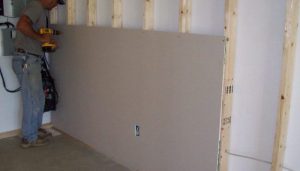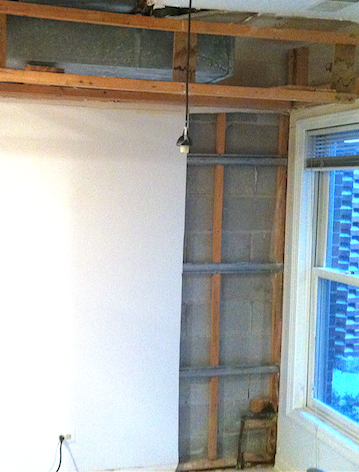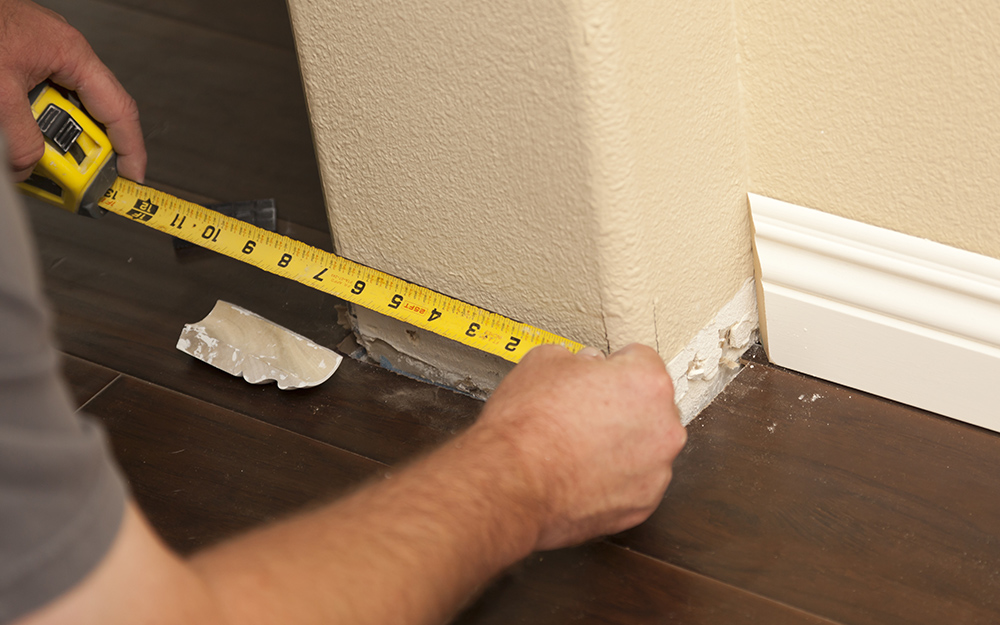
Drywall installers (also known as drywall framesrs) are skilled professionals who install drywall in homes and other buildings. A variety of tasks are required for a drywall installer, such as measuring and cutting drywall or preparing a smooth surface to paint. The job of a drywall installer includes hanging, repairing, and installing light fixtures and other light construction tasks.
There are many ways to become a drywall installation expert. You can choose from a vocational school, an apprenticeship program or specialize in different types of wallpaper. No matter what path you take, you will make a positive impact on people's lives.
Drywall installation is a physical and demanding job that requires a high degree of concentration, flexibility, and attention to detail. Installers are often required to stand for long periods of work, both indoors and out. They might also need to lift heavy items or use specialized tools. Installers may also need to deal with asbestos.

Although a degree does not necessarily mean you can become a drywall installer, it is helpful. It gives you the knowledge and skills necessary to be a drywall installer. Many employers prefer that you have a degree. This means that a drywall installer can advance to a higher position after gaining experience.
Many jobs in construction are becoming more complex. A drywall installer may have to lift and conceal heavy pieces of drywall in order for it to fit on a ceiling. He or she will also have to measure and cut drywall to fit the wall's framing. A wall installer should have great physical stamina.
The typical drywall installer works 40 hours per week. They can work longer hours during peak periods and weekends, but they are expected to be more productive. Before they can enter the United States, drywall contractors must pass an I-9 immigration document verification exam.
People who want to become drywall installers should be able to demonstrate a strong sense ethics, personal responsibility, reliability, and professionalism. They should also be able to communicate with clients and coworkers. Because the job is physically demanding, drywall installers must also be able to solve problems.

You can make a great living if you are interested in this job. Construction workers are in high demand. They can be hired to renovate and build new structures. These craftspeople are in high demand, but there is a shortage of skilled professionals in many fields. This is a positive sign as it indicates that there is plenty of talent for skilled craftspeople.
Trades careers offer many benefits, not only the high pay but also a wide range of other benefits. Many people enjoy working outdoors. There is also no student loan involved which allows you to earn money quicker. The construction industry is also merit-based which means that there are many opportunities for advancement. You can choose to be a drywall contractor, a plasterer, or a roofing contractor. The challenge of learning new skills and helping build a better community is what you will enjoy.
FAQ
Is there any way to save money when renovating my home?
You can save some money by doing as much of the work yourself as possible. For example, you could try to cut down on the number of people you use during the renovation process. Another option is to try to lower the cost of the materials you use in your renovations.
What room should first be renovated?
The heart of any home is the kitchen. It's where you spend most of your time eating, cooking, entertaining, and relaxing. So if you are looking for ways to make your kitchen more functional and attractive, start there!
A bathroom is an essential part of every home. It provides comfort and privacy while you take care of everyday tasks, such as bathing, brushing teeth, shaving, and getting ready for bed. This will make these rooms more functional and beautiful.
Do you prefer to do walls or floors first?
It is the best way to begin any project. It's important to think about how you are going to use the space, who will use it and why they need it. This will help to decide whether flooring or wall coverings is best for you.
You may want to lay flooring before you create an open-plan kitchen/living space. You could also consider wall coverings for privacy if this is the space you are looking to create.
Are permits necessary to renovate my property?
Yes. Permits will be required for any home-improvement project. In most cases, you will need both a plumbing and building permit. A zoning license may also be needed depending on the type or construction you are doing.
How long does it take to complete a home renovation?
It depends on the size of the project and the amount of time that you spend each day. The average homeowner spends three to six hours each week working on the project.
Statistics
- Most lenders will lend you up to 75% or 80% of the appraised value of your home, but some will go higher. (kiplinger.com)
- Rather, allot 10% to 15% for a contingency fund to pay for unexpected construction issues. (kiplinger.com)
- ‘The potential added value of a loft conversion, which could create an extra bedroom and ensuite, could be as much as 20 per cent and 15 per cent for a garage conversion.' (realhomes.com)
- It is advisable, however, to have a contingency of 10–20 per cent to allow for the unexpected expenses that can arise when renovating older homes. (realhomes.com)
- According to the National Association of the Remodeling Industry's 2019 remodeling impact report , realtors estimate that homeowners can recover 59% of the cost of a complete kitchen renovation if they sell their home. (bhg.com)
External Links
How To
5 Things to Know Before You Start Your Home Renovation
-
This is a big undertaking. It's likely that you will need assistance if you plan to tackle a large home improvement project, such as remodeling your kitchen or bathroom or building a new home. You might reconsider if you're not confident enough to handle such a huge task on your own. It will take up much of your time and money. There won't be any real benefits. Hire someone who knows the ropes to help you. You'll be able to save a lot of time and stress while still having a lovely space to call your own.
-
How much should I budget? This one may seem obvious, however spending too much on renovation projects could make matters worse. It's because you'll most likely be responsible for paying back the majority of the costs. Keep your budget in mind. You could wind up spending a lot and not getting any return.
-
Should I use DIY or hire professionals? - While there is no right or wrong answer, we recommend that you hire professional tradespeople if possible. They'll give you the best advice possible on how to proceed with your particular project. For example, they'll be able install the plumbing correctly, ensure that everything is done safely, and provide you with a warranty when they finish their work. On the flip side, DIY projects usually involve lots of trial and error, which means you'll have to learn a lot of lessons the hard way. There will be many problems along the way.
-
What are my options? - Don't underestimate what a renovation will cost. Even if your budget is tight, you may need to borrow money to cover costs. You should also consider the cost of selling your property if you plan to move soon after the renovations are completed.
-
How do I begin? There is no wrong or right place to start when it comes time to choose where to begin. We recommend that you pick something that you are passionate about. This will help you stay motivated and make it less likely that you procrastinate. Also, try to avoid places that require a lot of maintenance. You shouldn't redecorate your living space if you are constantly cleaning up dirt and dust.